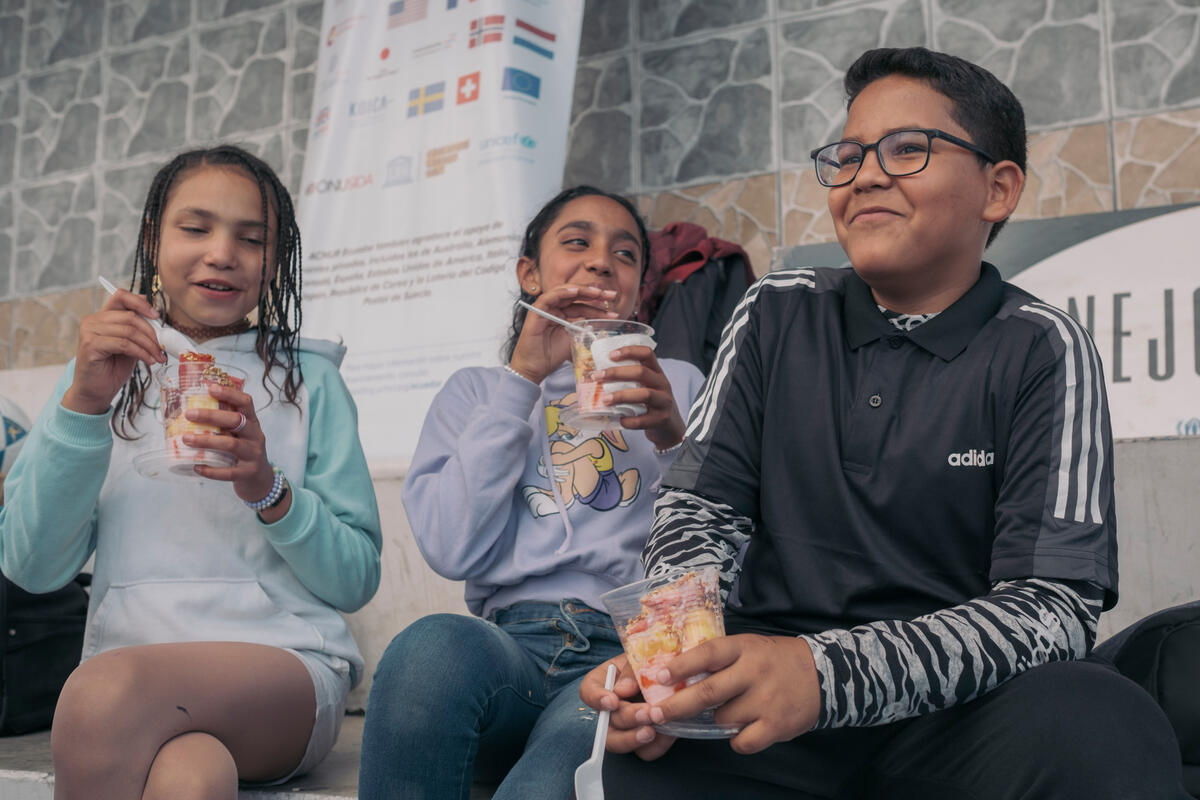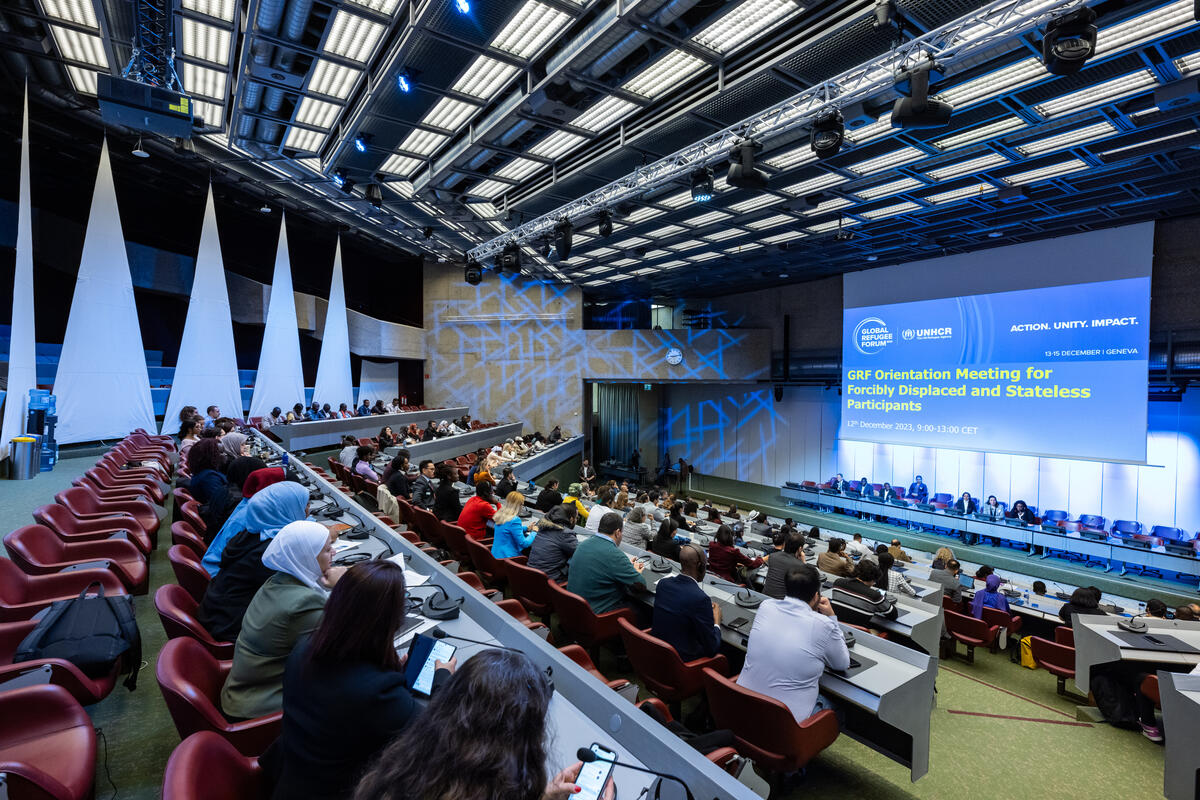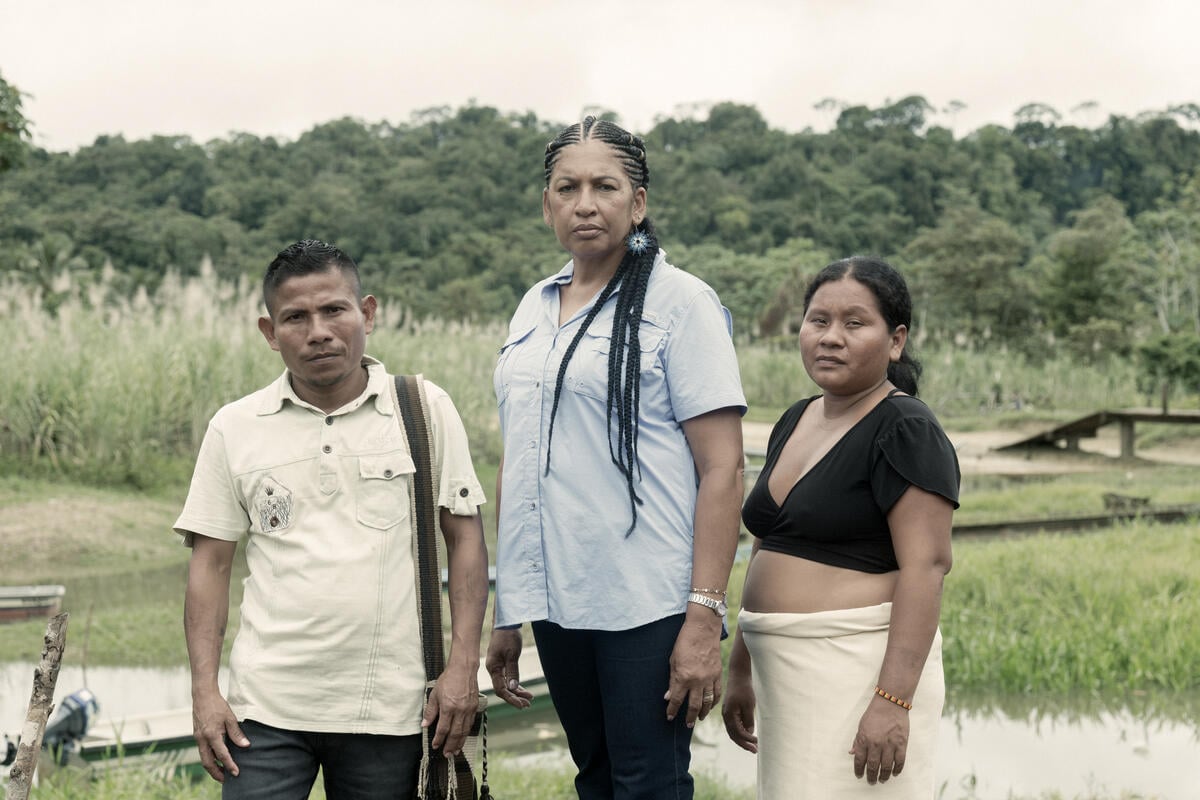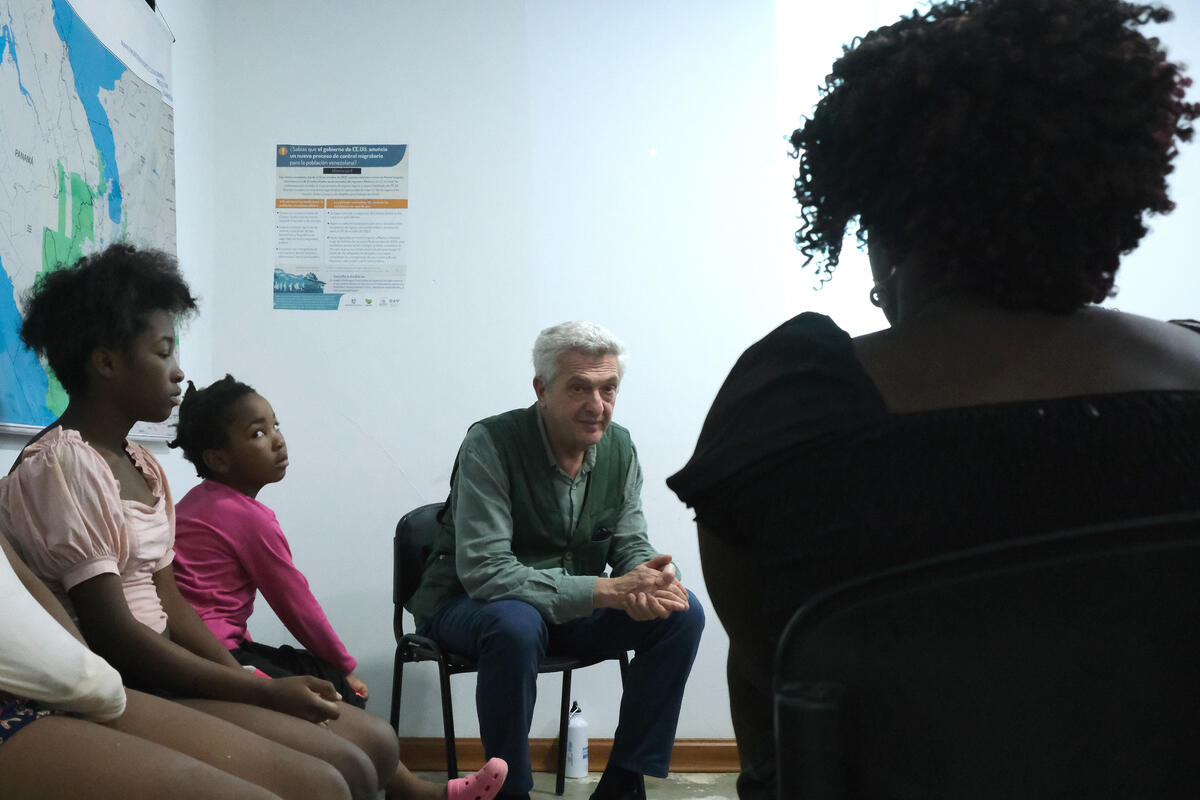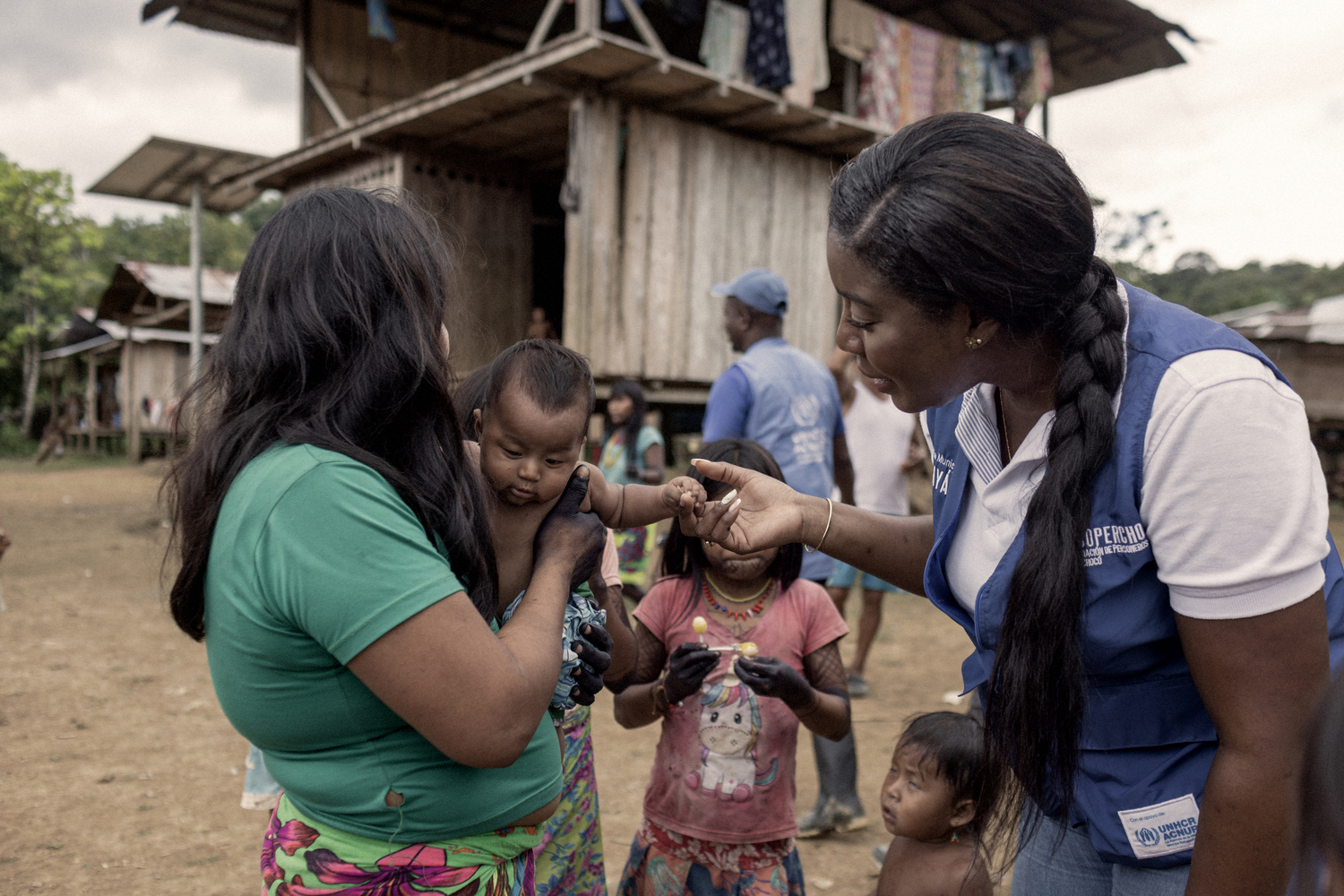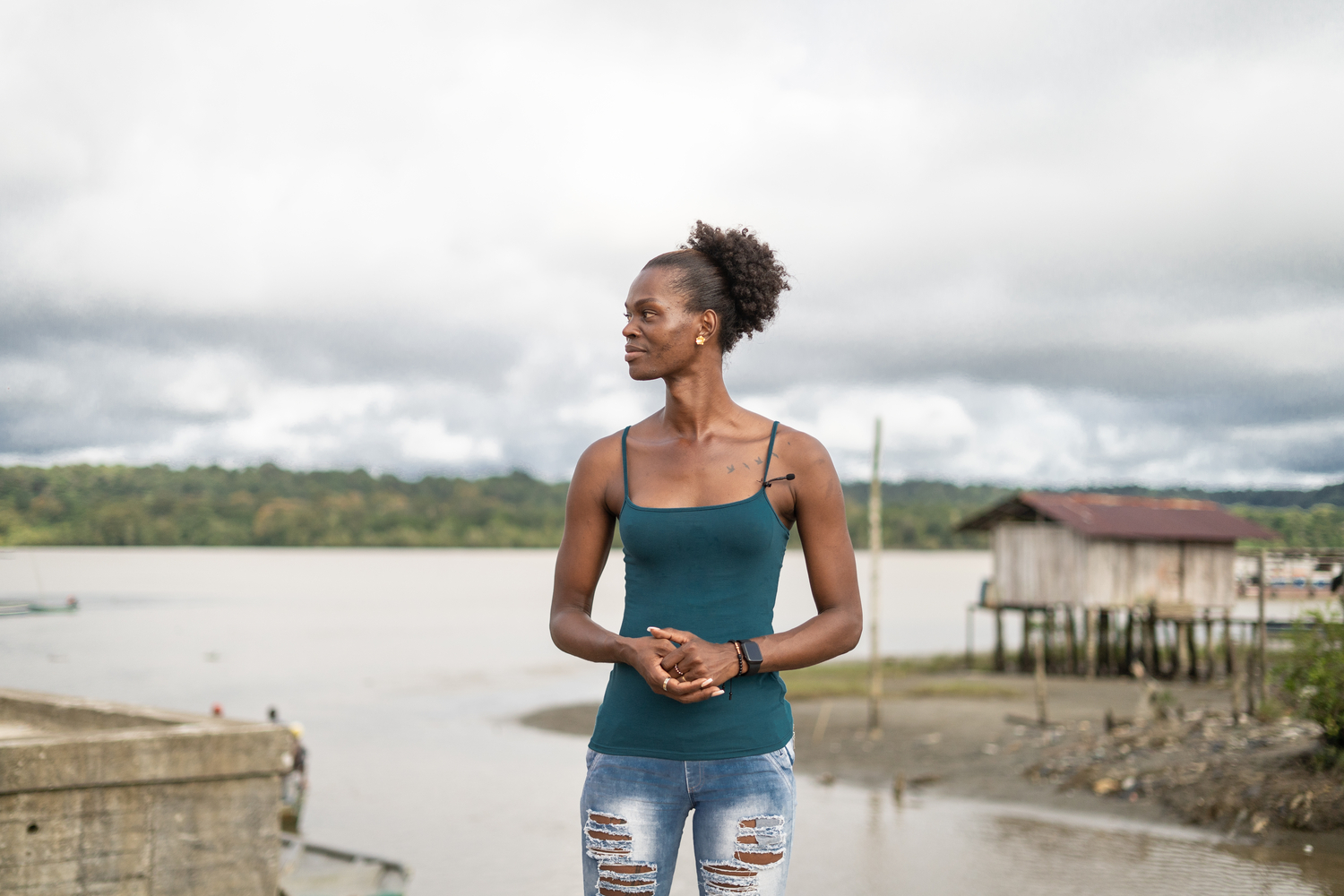Colombia: Deterioration in Nariño region
Colombia: Deterioration in Nariño region
After months of deterioration, the humanitarian situation in the southern Colombian region of Nariño near the border with Ecuador, has now reached a critical stage, with thousands of civilians either caught up in fighting or forced to flee. We are calling on the government to address this ongoing crisis, which has caused several waves of mass displacement this year.
In northern Nariño, more than 800 people were forced to leave their homes last week to escape fighting between two irregular armed groups. They have taken refuge in Los Andes, the largest village in the area, where they are sheltering in the local school and in private homes. A UNHCR team went to Los Andes earlier this week and reported big problems of overcrowding and lack of food for the displaced.
The local authorities have triggered their emergency assistance plan and are calling for support to cope with the crisis. This is the third time this year the municipality faces a mass influx of people displaced by violence. This part of the country, in the Cordillera of the Andes, is poor and under-developed. Forced displacement - especially when it is repeated - further drains the meagre resources of displaced people and local communities alike.
Also for the third time this year, Awá indigenous communities in two reservations ("resguardos", or autonomous indigenous territories) are trapped in renewed fighting between the army and an irregular armed group. Fighting started on 28 October, forcing a few families to flee to the nearby town of Ricaurte and a few others across the border into Ecuador. Many more are moving from one settlement to another. There are reports they are not allowed to leave the territory to seek assistance. Humanitarian organisations have not had access to the area where the fighting is taking place.
Schools on the territories have once again been closed, further disrupting the education of hundreds of children who were unable to complete the last school year because of an earlier wave of fighting in July. At that time, 1,200 Awá people fled their territory to escape the violence. Five of them were murdered in the village of Altaquer, where they had sought shelter, on World Indigenous Day (9 August). Their killers have still not been identified.
UNHCR teams in Nariño and Ecuador are in close contact with the Awá indigenous association and are coordinating the delivery of assistance with the local authorities. We once again call on all actors in the armed conflict in Colombia to respect international humanitarian law, the right to freedom of movement and the right of civilians to seek safety both inside and outside their country. There are three million displaced people in Colombia. There are an estimated 250,000 Colombians of concern to UNHCR in Ecuador.

